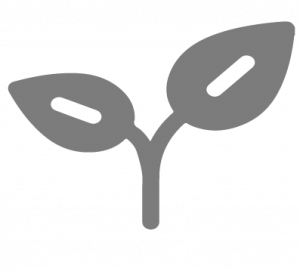Rose Scale is a small insect which feeds on the sap of the rose plants. They are one of the most common and destructive pests of roses causing significant damage to plants. Rose scale thrives in warm and dry conditions. High temperature and low humidity provide ideal conditions for their development and reproduction. This article will provide an overview of rose scales, including its symptoms and management measures.
Type of Infestation
The rose scale is a sap-sucking insect that feeds on the phloem sap of the rose plant. The pest is known to infest the leaves, stems and buds of the rose plant and can cause significant damage to the plant if left uncontrolled.
Scientific Name: Aulacaspis rosae
Most Affected States Due to Rose Scales
The rose scale is widespread throughout India and is known to be a major pest of roses in several states, including Maharashtra, Karnataka, Tamil Nadu, Uttar Pradesh and West Bengal.
Symptoms of Rose Scales
The symptoms of rose scale infestation can be easily identified by,
- Yellowing of the leaves, stunted growth, reduced vigor and wilting of the plant.
- The infested leaves may also have a sticky residue, which is a result of the honeydew excreted by the pest.
- Additionally, the presence of adult female rose scales, nymphs and crawlers on the plant can also indicate an infestation.
Rose Scales Control Measures
Cultural Measures
- Remove and destroy the infected plant debris.
- Maintain good plant health through proper irrigation, fertilization and soil management practices.
Physical Measures
- Gently wipe the leaves and stems of the rose plants with soft cloth or brush to remove scale insects.
Mechanical Measures
- Pruning the affected branches is one of the easiest ways to control scale insect infestation.
Biological Measures
- Encourage natural predators such as ladybugs, lacewing and parasitic wasps to control the population of rose scale insects.
- Greenpeace Neemol Bio Neem Oil Insecticide contains azadirachtin which when used at the rate of 1-2ml per liter of water with 15 days interval between each spray can effectively control rose scale insects.
- Anshul Bio Finish is a broad-spectrum biopesticide containing natural plant extracts which can be sprayed to rose plants for controlling scale insects. The recommended dosage is 3-5ml per liter of water. Spray the mixture at a regular interval of 10-12 days for better results.
Rose Scales Chemical Measures
Rose scales can be controlled using commercial insecticides. Some of the most commonly used insecticides for controlling rose scales includes,
| Product Name | Technical Content | Dosage |
| Tafgor Insecticide | Dimethoate 30% EC | 1.5-2.5 ml/lit of water |
| Keefun Insecticide | Tolfenpyrad 15% EC | 1.5-2 ml/lit of water |
| Acepro Insecticide | Acetamiprid 20% SP | 0.5 gm/lit of water |
| Confidor Insecticide | Imidacloprid 17.8% SL | 0.75-1ml/lit of water |
DISCOVER MORE : Defeating Rose Thrips-A Guide For Successful Management.





